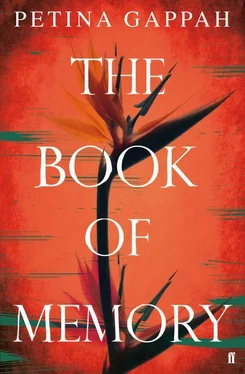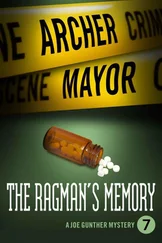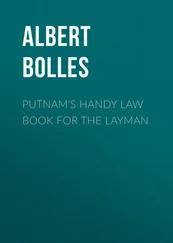At Sam Levy’s, I was thrust into the middle of the usual lunchtime crowd, skinny white girls in denim shorts that skimmed their butts, aggressively coiffured black women tottering in vertiginous heels, walking like they had something uncomfortable between their legs as they tried to sneak up on a particularly skittish rabbit, and workers in blue overalls queuing to buy a cheap lunch from TM. I bought my lunch at Antonio’s, shopped for a bagful of groceries at TM, and bought an Internet voucher at the Apple store.
In the TM parking lot, a man with an armful of flowers ran up to me. ‘Some flowers, madam,’ he said in a wheedling voice. ‘I have some very nice flowers — nice, nice flowers.’
Our eyes met. There it was again, that familiar double take, the recalibration that played out on his face as his mind adjusted to the reality of what I was. He immediately changed to Shona, his voice stronger, cockier. ‘Some flowers, sister. Zvakadhakwa nhasi , sister. Come on, sister, you are my first customer today.’
I smiled at the switch from formality to familiarity, from ‘madam’ to ‘sister’. He pushed his flowers at me, flame lilies and calla lilies, strelitzias and proteas. I bought two bunches of strelitzias. They were Lloyd’s favourite flowers. I liked their other name better — birds of paradise. I put them in the back seat with my other parcels and drove back to the Archives.
I ate my lunch in the garden, finished selecting my pictures and drove to the university. Lloyd was still in a lecture, his department secretary told me. As I followed her directions to the lecture room, it occurred to me that I had never been to one of Lloyd’s classes. I threaded past little knots of students. I wrinkled my nose against the pungent smell from the toilet in the corridor.
Lloyd was in a large lecture hall but had only a few dozen students in front of him. I took a seat and listened. He was in the middle of lecture, and he spoke without notes. In the vastness of the lecture room, with a few students before him, his voice echoed a little as he spoke.
‘Nothing operates by chance. If we hold a fatalistic worldview or believe in fate, we give that fate a name or series of names. Giving fate a name is a necessary imaginative act that permits us to establish a relationship with the controlling forces of our existence. We can convince ourselves that such fatal presences do listen to us, that prayer can persuade them, as can sacrifice, blood or penitence.
‘Take our local concept of ngozi , which appears in various forms in African and other ancient cultures. How does it differ from the Erinyes, the Furies who followed murderers and drove them mad? The idea that mhosva haiori, that a crime as serious as murder is felt until it is appeased is a common belief across humanity.
‘In Shona mythology, you can propitiate a ngozi spirit in the same way that the Greeks poured libations before the Oracle at Delphi. A ngozi can be appeased with live animals and with a young girl to carry the children the murdered victim was unable to have.’
As Lloyd spoke, I looked at his students. A girl in front of me scratched her head and played with her phone. A boy two rows beneath her was taking notes with such ferocious speed that his pen almost tore into his paper. Two were entering notes on laptops, and one, I saw, was open to Facebook. I turned my attention back to Lloyd.
‘Oedipus was pursued by ngozi . And it was Antigone’s desire to avoid the ngozi that drove her to defy Creon and bury the corpse of Polynices. When we talk of fate, when we talk of a fatalistic vision of human experience, what we mean is that the most important forces that shape human lives are out of human control.
‘It is to say that there is something, an external force that controls the rules of our lives, that determines the things of particular importance to us, our good and bad fortune, our happiness and sorrow, and, above all, our death. To have a fatalistic sense of life is to hold that our destiny is out of the control of any human being and that non-human actors will always determine the outcomes.
‘This is both comforting and terrifying. On one hand, we have no control and can give ourselves over to the forces that control us. On the other, we have no control, and are carried along on a tide we cannot control.’
I realised then something that I could not have not known as a child in his house. Lloyd was a fine teacher. He finished the lecture, and I waited while the avid note-taker spoke to him. When he left, I gave Lloyd his phone. He had a department meeting to go to; he would see me at home. I am glad that I saw this side of Lloyd because when I went back home that Friday, I found him dead in his room, a dry-cleaner’s plastic bag over his purple face.

I have had more than two years to think and reflect on everything that happened to me from the moment that I found Lloyd in his room to the moment the judge pronounced my sentence. And I have concluded that the judge had no choice but to reach the conclusion that he did. What else was there to believe? They had a confession. They had a witness who had seen me moving Lloyd’s body. They had the gun.
The police came for me on the day that Lloyd died, the second last Friday in November. By Christmas, I had been tried, convicted and sentenced.
The speed and swiftness of my trial also had something to do with other events that took place around the time of Lloyd’s death. Vernah Sithole will tell you that the trial was quick, much quicker than any murder trial has ever been. Within two weeks of the start of the trial, the judge had reached his verdict.
I have become convinced that the death of three white farmers in the month before Lloyd’s death had something to do with the swiftness of my trial. There had been an outcry around the world about these deaths, but no one had been arrested; no one had been tried.
So when Lloyd died, another white man over whom the world would make a hue and cry, something had to be done. And there I was, a readily available suspect, caught with the body, ready to make this a simple domestic murder, nothing at all to do with the vexed and anxious questions of land and its ownership.
I did not go back to Summer Madness after they arrested me. I was deemed a flight risk. I had no apparent ties to anyone in the country, and so I spent my time on remand in Chikurubi.
On the first day of the trial, I was brought to the High Court. I was led up to Courtroom A through a series of quadrangles, passing groups of lawyers in gowns and jabots, crow-like figures bursting with mirth and legal glee.
In the wood-panelled courtroom, the judge and his two assessors sat on green leather chairs with backs as high as gravestones. The judge spent much of the trial looking into the middle distance. The assessor to his right was asleep. The assessor next to him, a woman of Indian origin, had a face that was twisted into a rictus of concern.
The door behind the judges’ dais opened every few seconds and from the corridor behind would come snatches of conversation that floated disconnected into the courtroom.
‘Ende makafitwa nekaweave ikako vasikana.’
‘Ndakafitwa? I wanted to take it off.’
‘He was abusing me in the vilest terms, with the utmost contempt and contumelia.’
‘Kafish aka kari right manje.’
‘Yah, he always brings good fish.’
The dock I sat in was in the middle of the courtroom, facing the judges and assessors; the prosecutor and my lawyer had their back to me. The prosecutor wore a lace jabot that did not connect at the back of his neck, the ends stuck out of his gown as he talked.
Читать дальше













